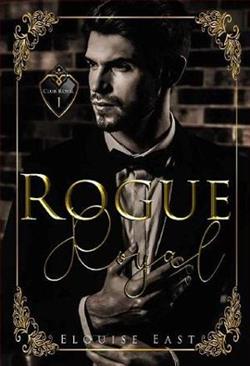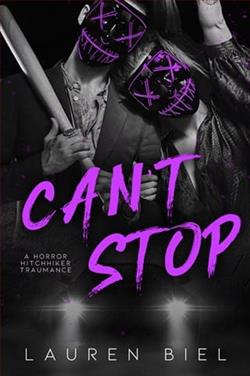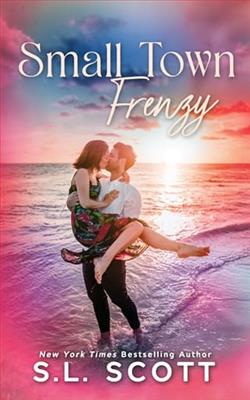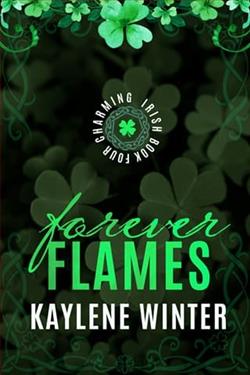Page 150 of It Happened on the Lake
And how, if at all, was Tristan Vargas involved?
He hit the curb at the end of the street and slowed to a walk, past the rental house which had been dark for weeks, then the Alexanders’. It, too, was dark, as was the Hunts’, where Levi’s car sat in the drive.
He wondered about the relationship between Levi and Chase, always strained. Levi had never quite lived up to his older brother’s achievements while they were in school. He had never been as brilliant in the classroom or as athletic on the football field, though he had been an ace pitcher, his fast ball swift enough to gain him a walk-on position at Oregon State. But Chase, at one time the favored son, the golden boy, had always considered his younger brother a pain in the ass. “Baseball,” he’d sneered when Levi made the high school varsity team as a freshman. Then again, Chase had never trusted Levi.
Why? Just the male rivalry thing?
Rand, who had no brother or sister, never really understood the acrimony between them.
From the outside Levi appeared to be a stand-up guy. But Chase’s warning about having Levi watch over Harper still rang in his ears: “Not Levi . . . he can’t be trusted.”
Once home, Rand showered, shaved, and dressed. He made certain he had Cynthia’s note along with the other information Levi had given him in his pocket, then drove to the station.
It was early when he got to the office, long before his shift officially started.
Waiting for him on his desk was the autopsy report on the woman who he’d seen floating face down in Lake Twilight nearly thirty years earlier. He remembered witnessing his father and Thomas Hunt trying to revive her. Gerald Watkins kneeling beside her body, water dripping from his hair as he gave her mouth-to-mouth resuscitation.
All to no avail.
Her cold blue lips never moved.
Her open eyes never blinked.
Anna Reed was dead.
His jaw tightened at the memory. He’d gotten sick, Cynthia Hunt had screamed, Chase had turned away from the horrid spectacle, and Levi had just stared, his own face ashen. And the sounds. The dog barking, others joining in, sirens splitting the night, and the horrid beating of his own heart. All thoughts of the night before when he’d been out on his bike, plastering Martin Alexander’s truck with eggs, had been forgotten.
According to the toxicology report, Anna Reed’s blood-alcohol level had been sky-high and there had been excessive amounts of diazepam in her bloodstream. Anna had been prescribed Valium for anxiety and insomnia, and she’d somehow overdosed, either accidentally or intentionally. The combination of booze and medications had caused intense drowsiness, and in the end, she’d drowned. The cause of death on the death certificate was listed as accidental drowning.
But why had she been in the lake?
At the time, he’d never questioned why she’d ended up in Lake Twilight. But then he’d been a kid at the time, only eleven. As best friends with Evan, Harper’s brother, another one of “the Three Musketeers,” Rand had always known Anna Reed was different. Distant and a little out of it.
With Anna’s death everything had changed. Evan, once cocky and irreverent, had turned quiet. Dark. Introspective. He’d become a different person after losing his mother, but then who wouldn’t? Hadn’t Rand, himself, suffered a different kind of loss when his own mother had taken off?
But back to Anna Reed’s death.
The question that had been on everyone in Almsville’s lips that cold November morning—had Anna Reed accidentally taken too many sleeping pills and somehow ended up on the dock and fallen into Lake Twilight? Or had her death been intentional? No one understood why the heiress to Dixon Island would take her own life. Wasn’t it perfect? A husband, two healthy children, and eventually enough money for herself, her children, grandchildren, and generations to come? Had she been mentally unbalanced? Emotionally unstable?
Or had she been the victim of homicide?
Had someone taken advantage of her drugged state and tossed her into the lake to drown, or even loaded her up with pills and then dropped her into the dark water? Or had she, for some private, unknown reason, taken her own life?
He wondered, clicking his pen and thinking back.
The gossip had been rampant, burning through the town.
That much Rand remembered.
But the subsequent investigation of Anna Reed’s death had turned up no evidence of either suicide or homicide.
No suicide note left at her bedside.
No calls to loved ones to say goodbye.
No evidence of recent depression.
No suspicious activity by anyone close to her.















